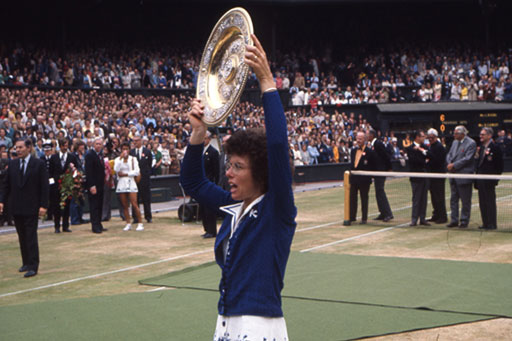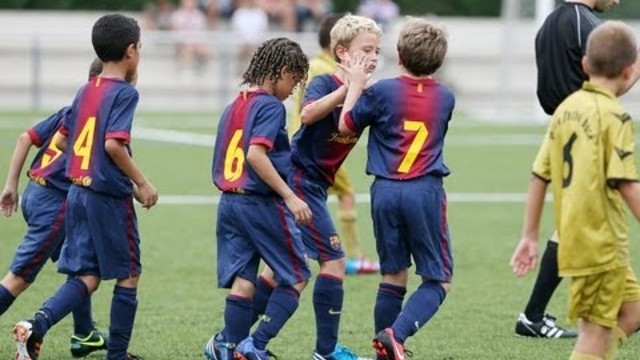
Monthly Archive for June, 2013
Page 2 of 4
In many sports the gaze determines the quality of attention. A football player before beating a punishment watches where he wants the ball goes, in free throw he/she watches on the ring or in tennis he/she looks at a point s where he/she wants the service ball goes. Well .. what do they do to train this skill? For me very, very little.
One of the factors that limit the diffusion of the mental coaching among athletes lies in the resistance that coaches show toward this activity. For many of them the psychological preparation is “something more” to use only in those cases in which athletes show obvious mental limitations that hinder their performances. Coaches usually send to the sport psychologist those athletes that they call “athletes good for training” and that they have poor performances in the race. In other words, they send those athletes on which after having “tried everything” cannot “unlock”. Athletes who start a program of mental improvement from a negative state hope to achieve positive results in a short time, which is very difficult for athletes who often have the same problem for years, have never done anything to change and live every race with the hope that will be the one that will overcome their problem. In addition, these athletes are not used to invest economically on them, except for a few sessions of physiotherapy for physical problems, and then think about having a mental coach for at least a year with which to carry out a specific program becomes an additional obstacle. In favor of the athletes must be said that in Italy the sports federations and sports organizations of the State do not offer any support and, to be more clear, this sport side it’s completely misunderstood. Consequently, what are the athletes who attend programs of psychological preparation? They are usually the strongest athletes, those can win a medal in the international competitions, they understand the added value of mental work and are willing to invest financially. They are also the parents of those who practice sports such as tennis, golf and shooting in the planning of future career also consider this aspect and these athletes are generally motivated to follow these programs. To reduce the economic impact on the individual, sports clubs could arrange meetings with their athletes, but nobody else does. On the other hand it is extremely rare for a coach to follow a program of psychological training, so while on the one hand we tend to ever more extreme knowledge for physical and technical training, with regard to psychological ones we are still left at the principle of the stick and the carrot that everyone interprets according to his/her personal experiences.

“People want to engage in something whole-heartedly in order to find meaning.”
(Ryumon Gutierrez Baldoquin)
In an unbelievable review The Daily Beast talks about the greatest stars who had failed in the role of coaches and manager. Among them myths like Michael Jordan and Magic Johnson: http://www.thedailybeast.com/galleries/2013/06/14/from-great-to-blah-star-athletes-who-failed-as-bosses.html#815027b6-2b8e-4092-9a13-dc2dcb24cde5


It’s still continuing the Stephan El Shaarawy’s crisis, Milan football player, after a good first half of the season, he played a rather subdued the second part and this crisis seems to continue in the national team. Crisis are quite common in young players and, maybe future champions, as it is not easy to maintain high performance levels when everyone expects it to be so.
Many athletes feel these emotions and should have to follow a program of psychological coaching to train mentally to handle them effectively. I hope that Prandelli, the Italian team coach, is not one of those coaches that says “do not worry, as soon as you score a goal all these thinks get out.”
The main training mode are the following:
- Relaxation associated with mental rehearsal of the performance – it’s about knowing how to relax reducing usefulness tensions and charging with those who promote the performance.
- Identification of the optimal emotional state – Allows the player to train himself to stay in the optimal psychological condition, experienced in the past on the occasion of his best performances.
- Simulation – Replicate the match conditions in training helps to improve the performance and prepare for the unexpected situations that may occur. Consists, for example, in producing in training stimuli that may distract the athlete from the execution of his performance.
- Acceptance of competitive stress – It’s essential to accept that the emotional condition felt before the game is an important individual reaction; it emphasizes the value that is attributed to that match. In fact, without the stress perception the matches would only other workouts. Instead, they are carried out to prove to ourselves our competitive value through comparison with others.
“What do you mean when you write that the critical ingredient for a championship is love?”
“I know teams that get along well, they party together, but they’re not about the sharing and the deep care that you have to have as a team. You have to protect each other. You have to cover the other’s butt when he’s getting beat offensively. You have to know how to deliver the ball so people can get a good shot. You have to move outside yourself and think others.”
(By Belinda Luscombe, Time, June 3 2013, 10 Questions).






